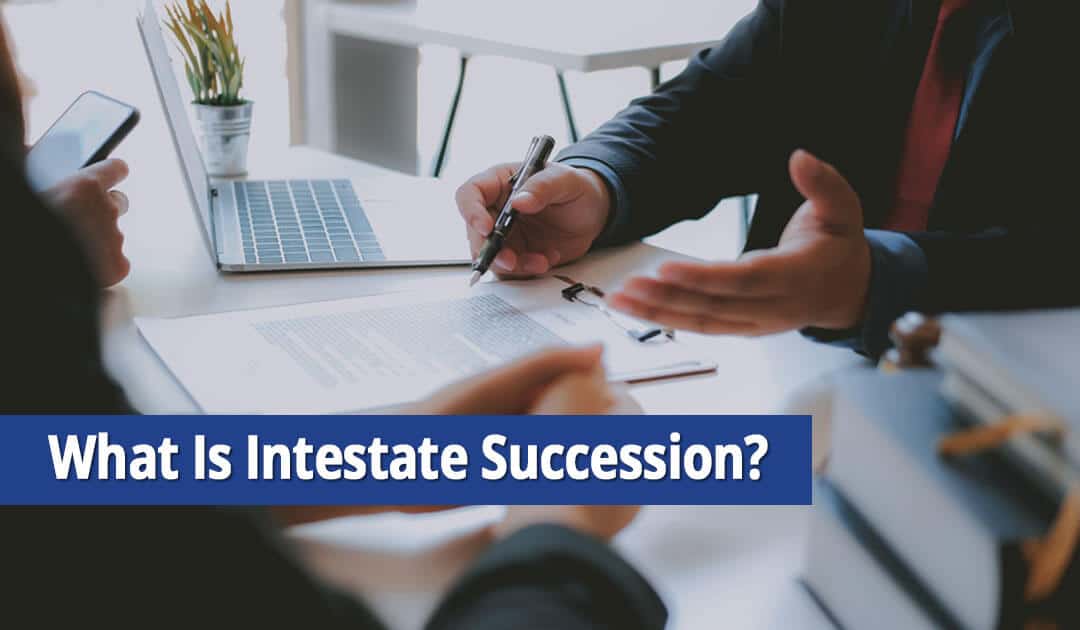What Affect Does & Divorce Have on Probate & Intestate Succession?

Getting a divorce is complex and involves managing multiple aspects of your current life and future at the same time. One of those things is what will happen to your property and assets in the event of your death now that you are going to be divorced. If this happens, two things may occur — either probate or both intestate succession and probate. Here’s what to know about intestate succession and how to get assistance with estate planning after divorce and navigating the many difficult facets of dissolving your marriage.
What Happens If I Die After My Divorce & I Don’t Have a Will?
If you pass away without a last will and testament, this is called dying intestate. Intestate succession is the process of state officials making decisions about how your property will be distributed since no documentation is in place to direct how this should be done. There is no Executor of the estate and no one to guide the deceased’s estate through the distribution process. This unfortunately also means that your family may not get some of your important possessions or money that you wanted to go to one person may go to someone else depending on what the state of New York decides.
The Differences Between Intestate Succession & Probate
Many people mistakenly use the terms intestate succession and probate interchangeably, but these two things are actually different. A person’s estate goes through the probate process whether or not they have a will in place. When no will exists, state laws are used to decide how property is distributed. This is intestate succession. Probate is the actual process of settling a person’s estate, which occurs with or without a will. When a will is in place, a person’s estate only has to go through probate.
New York Elective Shares Rules
Elective shares are essentially your spouse’s right to inherit a portion of your estate if you pass away. In New York, elective shares are one-half or 50% of the deceased spouse’s net estate if they did not have children. If the couple did have children during the marriage, elective shares are one-third or 33% of the deceased spouse’s net estate. The net estate is what is left after the process of probate has been completed and all debts have been settled and provisions in the will have been distributed. Under New York law, once a divorce is finalized, these elective shares are revoked.
The Importance of Estate Planning During & After Divorce
Dying intestate after a divorce can have a significant negative impact on your family, especially if you have large assets that the state will be making decisions about. Although your spouse’s elective shares are revoked at the time your divorce is finalized, you need more planning ahead to protect your assets, property, and family. If you are getting a divorce or are considering your legal options, now is the time to explore creating a last will and testament or revising your current will to reflect how you want to distribute your property now that you’re no longer married to your spouse.
Make sure that you create or revise a valid will. If your ex-spouse can contest the validity of the changes you made to your estate planning documents or prove that you were not of sound mind when you created the new will after your divorce, the legal system may consider your will null and void. This means that if you had a previous will, it would be those directions that are honored. You should have witnesses with you when you sign your will that can attest to your competency and understanding.
For more information about Estate Planning During and After Your Divorce click here.
Get Help from Experienced Long Island Divorce Lawyers Hornberger Verbitsky, P.C. Today
Are you considering what legal options you have to end your marriage? Or has your spouse served you with divorce papers and you’re now preparing to dissolve your union? Hornberger Verbitsky, P.C. can help. Our veteran Long Island divorce attorneys can offer you and your family comprehensive, compassionate legal advocacy when you need it most.
We’ll help guide you to the resources you need for estate planning during or after your divorce while we manage family legal issues like alimony, child custody, and more. Call today for your free initial consultation by dialing 631-923-1910 or fill in the short form on this page.
SCHEDULE YOUR FREE CONSULTATION TODAY
Call 631-923-1910 or fill in the form below

Schedule your complimentary consultation and case evaluation with our experienced attorneys today. When you call, you’ll speak to our friendly Client Services Director, who will be able to answer your general questions and set up your appointment with an attorney who specializes in your unique case.
At your meeting, your attorney will describe the many options available and determine together which is the right solution for you. By the end of this meeting we’ll all understand how we can best help you to move forward.
No Cost or Obligation
There is no cost or obligation for this initial consultation. It is simply an opportunity for us to get to know each other, answer your questions and learn if Hornberger Verbitsky, P.C. is right the right law firm for you. Give us a call at 631-923-1910 or fill in the short form below to schedule your free consultation and case evaluation.
All Fields Are Required













